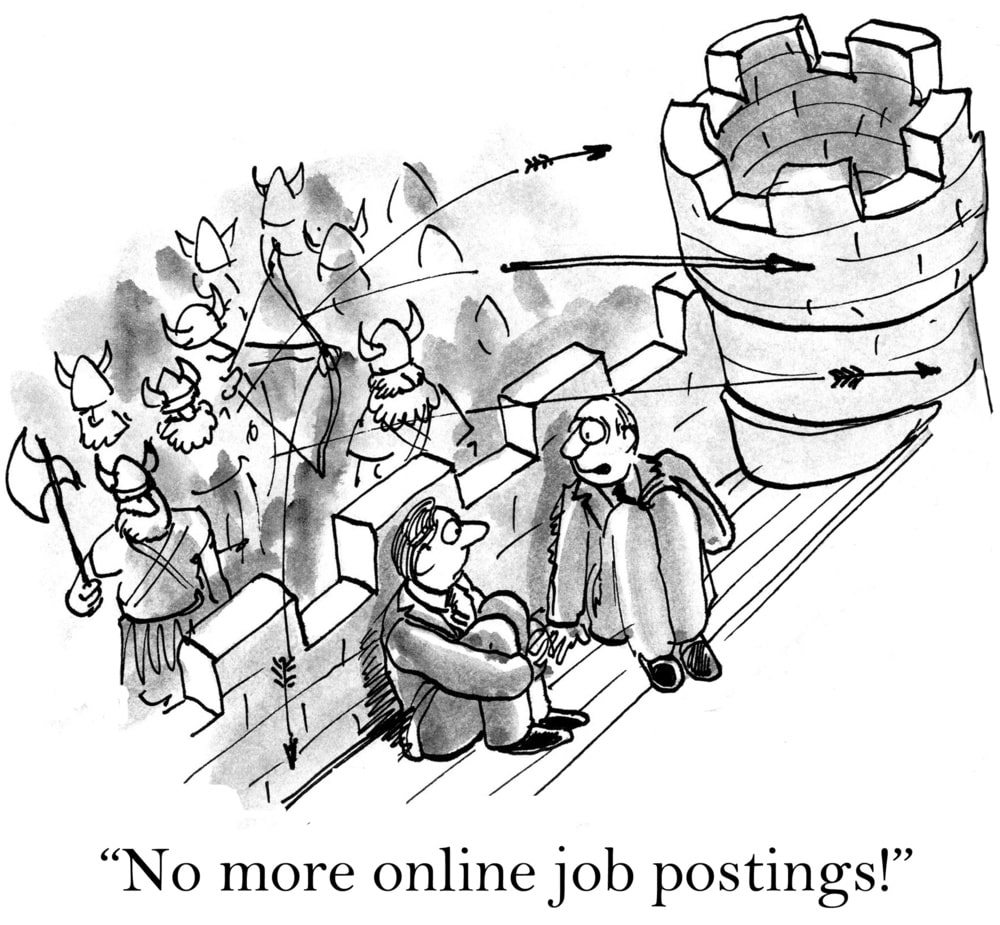Internal Vs. External Recruiters, And How to Secure the Best Talent for your Startup

How Do You Develop a Successful Hiring Strategy?
When hiring for startup jobs, one of the decisions you’ll need to make is whether to internalize your recruitment process or use external recruiters. Get your recruitment strategy wrong, and the cost could be overwhelming.
While there is some debate over just how much a poor hire could cost you, various sources put it at up to $240,000:
- The Department of Labor says a poor hire can cost as much as 30% of the hire’s first year earnings
- CareerBuilder says the average cost is $14,900
- Undercover Recruiter puts the cost at $240,000 (considering the factors of pay, hiring, and talent retention costs)
Whatever the true cost, can your startup afford to absorb it – when poor hires can be avoided by getting your recruiting strategy right?
We asked three questions to three experts in this field, two of whom wish to remain anonymous:
- The first – let’s call them ‘A’ – is a lead engineer and ex-software development manager at an early-stage startup
- The second – let’s call them ‘X’ – is a hiring manager at a Series-B startup, backed by Lightspeed Venture Partners
Our third interviewee is an Executive Recruiter here at Kofi Group, Aaron Reny.
Here’s what we asked.
Question #1: What are some general best practices that you would recommend to hiring managers at startups that would enable them to put their best foot forward when recruiting engineers?
Our industry experts were unanimous in that they believe organizations should be open and honest about their roles and their company culture. It’s important to ensure that the person you hire is suitable for the startup job from the standpoint of both their experience and skills and their personality and values.
A says, “Be able to describe your company in a few sentences. If possible, know how this role will be focused and be able to articulate that information. If the role is not well defined and you are just hiring ‘good people’, be forthright with that information.
“Do not promise what might be,” A continues. “It’s ok to look towards the future, but make it clear what the situation is now and what is potentially going to happen later.”
X says it is important to consider your culture, and be upfront about it. “It’s not enough to have an interesting product and big plans,” X tells us. “To recruit the best talent, you must also develop clear policies for things like diversity, equity, and inclusion – for how to report bad behavior, like sexism and racism, and a clearly outlined process for dealing with reports.
“The best employees out there want to know that the company they work for is going to uphold high ethical standards and is willing to state those standards and expectations clearly while committing to how they will maintain those standards.”
Question #2: Based on your experience as a hiring manager, what are some of the pros and cons of working with an internal recruiter vs an external recruiter? What do the best recruiters do differently?
Getting to the crux of the issue, we asked our experts about their personal experiences within hiring. A and X saw pros and cons with both strategies. Both highlight the lack of experience and reach into the talent pool as problematic for internal recruitment.
“Internal recruiting responsibilities, especially at smaller startups, may be spread between many people, none of whom have a primary goal of recruitment,” says A. “External recruiters often have established relationships with strong candidates from which to draw.”
X has worked with both internal and external recruiters. “They have different strengths,” X says.
“The biggest issue is that internal recruiters only represent the company they work for, and are therefore stuck trying to find the right fit within that company for amazing job seekers.
“An external recruiter should be looking not only for positions that fit, but specifically positions within companies that are a good fit. They best do this in both directions, looking to match candidates with companies in a way that delights both.”
Aaron gives an example of when external recruiters add real value to the hiring process:
“Having been an external recruiter for my entire professional career, in which I specifically worked with tech startups, I see first-hand how external recruiters can make a positive impact on an organization,” he says. “In one case, I was consulting for an innovative artificial intelligence company based in Seattle, WA. After receiving their second round of funding, they were looking to double the size of their engineering team by year-end, so they needed to scale out quickly.
“Since I have been recruiting in this space for the last couple of years, I had a network of engineers ready to start the interviewing process as soon as possible. Since the internal recruiting team was being incentivized to fill the jobs, regardless of using an agency, I was able to fill over 50% of their vacancies in a timely matter.
“The moral of the story is that if an organization is committed to filling their vacancies during a specific timetable, teaming up with a reliable external team will help them achieve these hiring goals much faster.”
Question #3: Which of these sources led to the most engineering hires: Direct applicants, employee referrals, candidates presented by HR/internal talent acquisition, or candidates presented by external recruiters/agencies?
Despite the disadvantages of internal recruiting, both A and X believe that employee referrals lead to most hires.
“The most?” asks X. “Employee referrals, hands down. These are given by people who want to keep both their job and their friend/colleague. There is a huge amount of skin in the game, so when referrals are made, they are generally worth pursuing.”
However, X also says that using external recruiters is often beneficial – and necessary.
“Kofi Group found our company someone to fit a role that had been open for at least six months,” X says. “We had plenty of direct applicants and even some employee referrals. But this role had some unique requirements that we couldn’t seem to find anyone to fit. I would absolutely recommend Kofi Group to hiring managers in a similar bind.”
So, Should You Internalize Your Recruiting?
Let’s turn to Aaron, whom with many years of recruiting experience has a very balanced view on this question.
“From an organization standpoint, I can understand the company’s decision to move towards an internal model because their recruiters will work as an extension of the organization,” he says.
“However, there are a couple of issues that I see that arise from this model. One being the recruiter’s relationship with the candidate.
“A good external recruiter builds fluid relationships with the candidates that they’re representing and has an excellent understanding of what he or she is looking for in their next position. They will also have a personal connection with the candidate, in which they will have a trustful relationship with each other.
“Consequently, the candidate will be more inclined to be completely upfront with an internal recruiter because they may feel whatever they say might be used against them in the interviewing process.”
Aaron also points out the agility that an external recruiter can bring to the hiring process.
“From an external perspective, we can engage with the candidates from a completely different level, in which we can engage them from a consultative perspective. Whatever issues we see arise we can address them immediately, before they become a hindrance to the process.
“Since we have a relationship with the client as well as the candidate, we can properly address issues and solve them through the proper channels.
“The last thing we want to do as consultants is to pair two parties into a bad marriage. This is about people’s livelihoods more than anything. So, it’s imperative that we make the proper steps in ensuring that this is going to be a prosperous match for both parties.”
Summing Up
Both internal and external recruiters have their advantages. Referrals can bring strong candidates to the table, but this isn’t always the case. Perhaps the best strategy is to combine the strengths of both in a blended recruitment strategy.
“Being an external recruiter for over seven years,” says Aaron, “I believe we have a unique advantage over internal recruiters. One is that we actively represent the market, rather than representing a singular entity.
“Internal recruiters are an extension of the organization they work for and even if that may seem more beneficial to engineering leaders, the issue arises on the recruiting substance. As external recruiters, we work a variety of different roles across many different clients, so we have more to offer to the candidate.”
Build Your Blended Recruitment Strategy with Kofi Group
Benefit from the advantages of internal and external recruitment strategies. Why have the best of one world, when you can have the best of both?
“Regarding the Kofi Group, I only have experience as a job seeker,” says A. “My experiences have all been very positive. I have already recommended colleagues in the past, and I will continue to do so. I am now working for a large real estate company with an internal recruitment group, so the opportunity to work with the Kofi Group as a hiring manager remains elusive. However, if the opportunity presents itself in the future, I will definitely consider it.”
To benefit from the Kofi Group experience, get in touch with Kofi Group today.
Share This Blog
Kofi Group has helped 100+ startups hire software and machine learning engineers. Will fill most of the roles we recruit on with 5 or less candidates presented.
Contact us today to start building your dream team!


